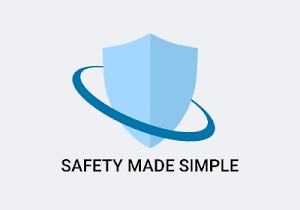When it comes to running your workplace smoothly, ISO training courses are the bread and butter of safe practices.
Whether you’re a health and safety manager, an internal auditor, or anyone whose work centres around an OHSMS (Occupational Health and Safety Management System), ISO training courses are an essential part of the job – for those starting out, or for those continuing in their role.
And with growing workforces and fast-paced industries taking centre stage, health and safety is more important than ever for running a successful business. This is where ISO training courses come in.
What is ISO?
Before we delve deeper, it’s helpful to know (or recap) what the ISO label actually entails, starting with the acronym: the International Organisation for Standardisation.
Breaking down each component of the name makes it clear: ISO is an independent, non-governmental organisation responsible for international standards, specifically in a range of health and safety practices. This includes tech and manufacturing, but also food safety, agriculture, and healthcare.

What about ISO 45001 training courses?
Don’t worry, you’ve not skipped over 45,000 equally important entries in ISO’s checklist for your company. The numbers following ‘ISO’ denote specific systems, mostly for the sake of organisation – you’re not expected to memorise thousands of them!
ISO 45001 specifically entails occupational health and safety management systems, which is essential for the safety of employees in the workplace. Check out some of the other popular choices here.
Some of the key components of an ISO 45001 course include:
- A deeper understanding of ISO 45001, using real and practical examples to reinforce your grasp and implementation of the concepts
- Comprehensive training on auditing techniques, including planning, conducting, then reporting them effectively
- Handheld guidance on how to properly implement an OHSMS.
- A thorough, comprehensive risk assessment walkthrough, teaching you techniques to help identify and mitigate risks and hazards yourself

Why should I take ISO training courses?
Meeting regulatory requirements is essential, and ISO training courses are the most effective way to realise this goal in your company.
Our ISO training courses in Liverpool are adaptable to companies of any size and can cover any sector, making them easy to introduce to employees, with standards that are just as easy to implement.
Building a better understanding of health and safety habits within your workforce will reduce chances of accidents occurring, and the improvements in proactive safety measures amongst your employees means management won’t need to babysit.
The course not only enhances skills of the leader, but instils improved leadership skills within everyone, creating a more independent and driven workforce that’s less likely to encounter problems.
Who is this course for?
The list in our intro covers the best-suited jobs for these courses, and whilst some prior knowledge of ISO 45001:2018 is important, this course is entirely accessible once you have the basics covered.
This includes knowledge of commonly used terms and conditions, such as the PDCA (plan, do, check, act) cycle, as well as health and safety/risk-based thinking. You can obtain a free guide to these standards online from the ISO website.
Are courses my only option?
Courses are intended to teach, but why bother when information is so readily available online? For the same reason you wouldn’t jump into rocket science because you’ve read the instructions for making a paper plane (though we promise our course isn’t rocket science).
Employees aren’t guaranteed to absorb information from scrolling through pages upon pages of regulations, and we’re sure you shudder remembering the dreaded days in school where the teacher let textbooks lead the lesson.
In-person ISO training courses are far more engaging, using a hands-on approach with real-life examples to help make content digestible and more likely to be retained by participants.
Not only will this ensure your business’s compliance with international standards, but it can also elevate your teams and the safety culture within your company.

























